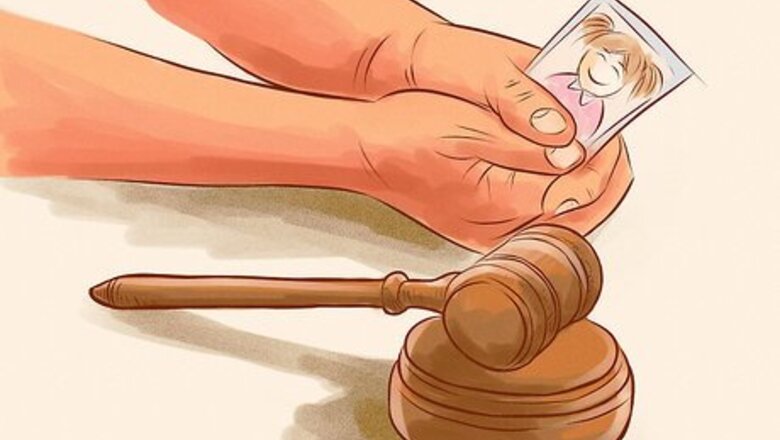
views
If someone reported you to CPS
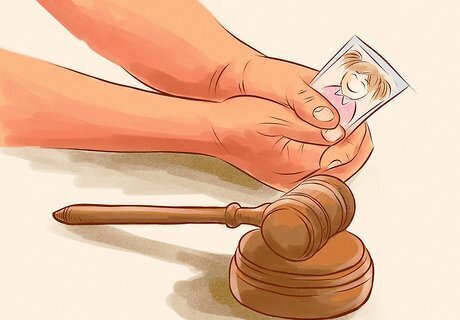
Know your rights with CPS. Because child welfare investigations are civil, not criminal, the 5th and 6th Amendments do not apply. This means you have fewer protections when it comes to CPS than you would have with law enforcement. However, you still have the 1st, 4th, and 14th Amendment rights available. Before reading the next steps, it is important you know your rights. The First Amendment allows you to record public servants performing their duties. Because CPS falls under state or local government, you have a right to record them regardless of their objections as long as you live in a one-party consent state and there is otherwise no reason for privacy. The Fourth Amendment protects you from unreasonable searches and seizures which means CPS must have your permission or get a court order (which requires probable cause to bypass your permission) from a judge to enter your home or search your child unless they believe the child is in imminent danger. The Fourteenth Amendment entitles you to due process of the law. This means you have a right to know what the reporter (except knowing his or her identity) said about you or your child, the right to an expedited hearing and a lawyer if CPS removes your children, and the right to fight an "indicated" report against you.
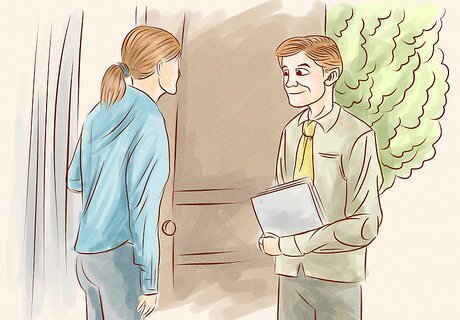
Record the interaction. Like police officers and ICE agents, you have a right to record CPS caseworkers. This provides objective documentation of what was said in case you need to defend yourself later. CPS caseworkers will write down everything that is said to them, but they can change what was said during the conversation so recording is important.
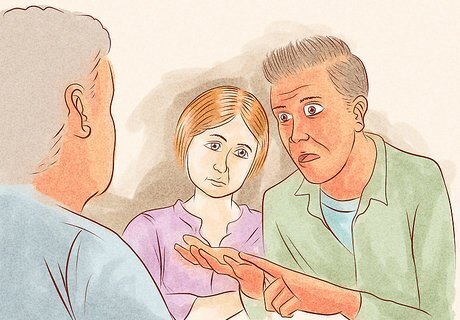
Do not talk to CPS without your attorney present. You and your child should not answer questions by CPS before speaking with an attorney as anything you or your child says can and will be used against you. Know that CPS is allowed to speak to your child in school without your consent. You must teach your child that they should call you if an unrelated adult wants to talk to them privately.Warning: Because states have a compelling interest to protect children, CPS is allowed to lie to parents or legal guardians to help investigate child abuse or negligence. For example, CPS may say they want access to your child's medical records to ensure he or she is receiving appropriate treatment to submit it to a child abuse pediatrician to see if they can find anything to uphold the allegations against you.
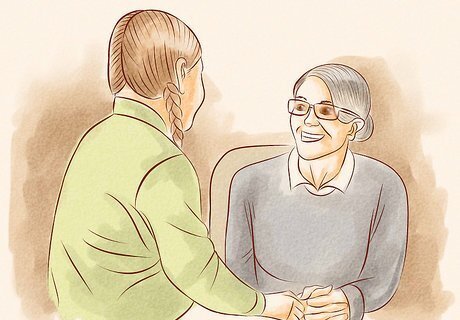
Ask to see a court order. For CPS to enter your property, they must have a court order signed by a judge or in exigent circumstances only. Otherwise, they must have your permission to come in. If you consent, it should be noted that you'll be giving up your 4th Amendment right to challenge evidence if your child is removed as CPS will argue you consented to come in. If you do not wish to let them in, simply respond with "I do not consent to searches." If CPS says they have a court order, ask to see it and do the following: Take a picture of the court order Look for the judge's signature (be sure to contain it in the photo) Read what the order is allowing CPS to do. Show it to your attorney if they request it.
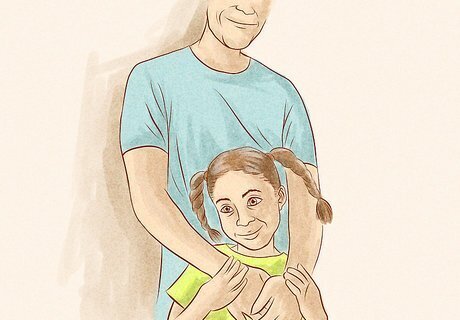
Let CPS see your child. Bring or ask your child to come to the front door and step out to see the caseworker. You do not need to consent to them undressing or performing intimate searches on your child without a court order allowing it and signed by a family court judge per Step 2. This demonstrates cooperation that does not involve waiving your rights.
Understanding What CPS Is Looking For
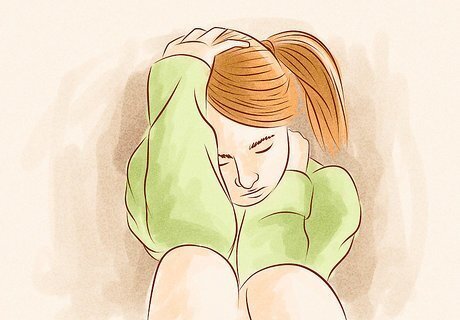
CPS will look for signs of physical abuse. First, CPS is making sure that your child is not being physically abused. Physical abuse includes any physical harm that comes to your child intentionally, from being hit to being burned or cut. It can also include anything that could have seriously injured your child but did not do so at the time, such as shooting a gun in front of them. Signs of abuse include bruises, cuts, bite marks, and burns.

CPS also looks for signs of mental or emotional abuse. This type of abuse is when a child comes to emotional harm because the parent or another person tells them they are worthless or unloved. Emotional abuse can also result from a child witnessing violent actions. Other actions can lead to emotional abuse, too. For instance, locking a child in a closet is considered emotional abuse, as well as alienating the child or trashing something the child values greatly. Signs of emotional abuse include a child who isolates themself or is overly active; they also may have speech problems or may not be as developed as she should be physically.
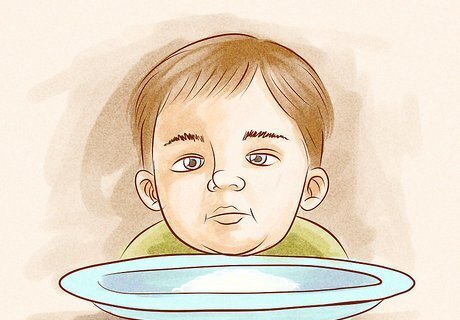
Be aware that CPS is also looking for signs of neglect. Neglect is when a child is not properly cared for. This type of abuse can happen when a family cannot provide adequate food or shelter for a child. It can also happen when a child is left with someone who is not responsible enough to care for the child. Your CPS worker will be looking for signs such as extreme hunger, extreme thinness, improper hygiene, and untreated diseases or wounds.
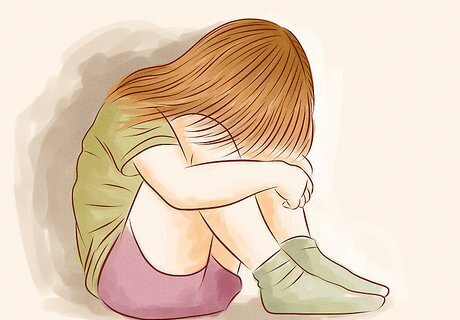
Know that CPS is looking for signs of sexual abuse. Sexual abuse is any sexual activity performed with or on a child. It can include anything from showing pornographic material to a child to engaging in or attempting to engage in any sexual activity with a child. Some signs of sexual abuse include difficulty with sitting or walking, ripped or stained underwear, and bruises. It also includes if your child has an advanced understanding of sexual material that normally a child their age would not understand.
Showing You Support Your Child If She's in Protective Custody

Keep in touch with your child. Though your child is in protective custody, you should stay in contact if you are allowed to do so. That shows you care for your child's well-being and what happens to them.
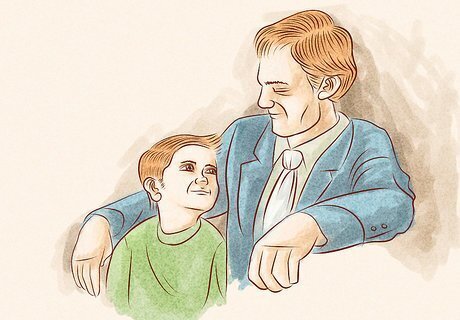
Plan for your child. One way to show that you are ready for your child to return is to make a plan. Start with what the court objected to. Maybe you were in abusive relationship with a partner or maybe you couldn't afford to feed your child. Show you are changing by getting out of the relationship and joining a support group. Show you can support your child by getting a better job or applying for food stamps if you need to do so.
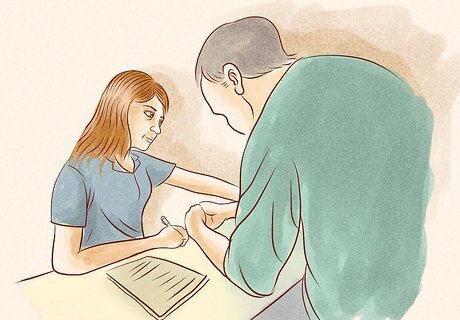
Follow CPS's instructions. CPS will not leave you on your own to deal with righting your life. They will work with you to make your life better, including helping you make a plan. They'll also put you in touch with resources you need to help put your life back together. However, it is strongly recommended you bring an attorney.

Show up for appointments. You will be required to attend a number of appointments in relation to your child. You also need to show up for any court hearings set up for you or your child. It's important to show CPS that your care about what happens to your child.
Changing Your Home Environment
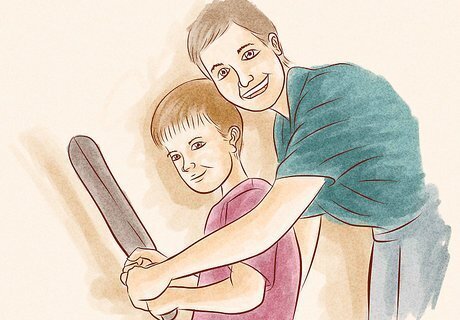
Give your child the support she needs. All children need praise and love, and you should provide that for your child on a regular basis. Tell them when they're doing a good job at something and remind them often that you love them. You can also support your child by making sure they get to school on time. Also, encourage them to have friends and invite them over when possible. You can also support them by asking about their day, making sure they do their homework, and helping them get involved in activities they enjoy.
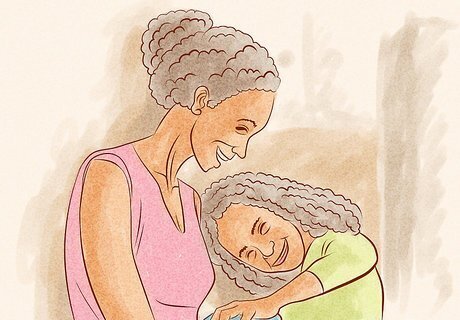
Establish a daily routine for yourself and your children. Your child needs this structure so they know what they can count on from day today. In addition, it helps keep you accountable. For instance, your kids should know that you will be there to pick them up from school or daycare everyday. They should also know what to expect when they get home, such as they need to do homework until dinnertime. Try to establish a routine at night where you get to spend time with your child, whether it's eating dinner together or reading a bedtime story together. Be in control of your life. Make sure that you, yourself have a personal routine. It can take a while getting used to having control of both your daily happenings and the happenings of your children, but work on it bit-by-bit, day-by-day. Take it step-by-step. For instance, if your goal is to have dinner together every night together, start with having dinner together every night, no matter whether it's fast food or home cooking. Next, move toward cooking for the family. Keep adding parts until you have a steady, healthy environment for your family.

Pay attention to personal hygiene. Part of your daily routine should be instilling good personal hygiene habits in your kids, from helping them brush their teeth to teaching them to wash their hands and bath. In addition, establish a schedule for housecleaning, such as laundry on Fridays and get your kids helping with chores. It will help you keep up with the housework and instill responsibility in them.
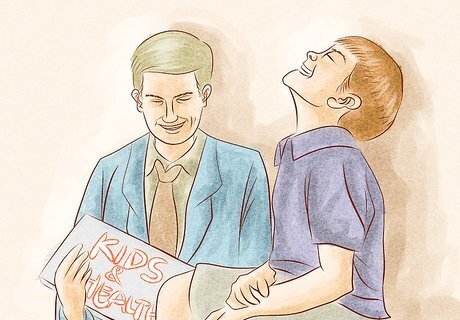
Keep you and your kids healthy. Part of this step is eating healthy, but it's also making sure you and your kids have regular checkups. Healthcare is more affordable now because you can qualify for subsidies to help pay for it. Check with your state's healthcare exchange or with the federal government's healthcare exchange if your state doesn't offer one. If you can't afford health insurance, you may qualify for Medicaid; ask your CPS worker to put you in touch with the right people to apply. Make sure you're offering your child plenty of fruits and vegetables, lean proteins such as fish and chicken, and whole grains. Dairy is also important for growing bodies. Also, encourage exercise in your family. Take walks together, or go to the park. If your kids are inside playing video games, try limiting screen time. Send them outside to play.
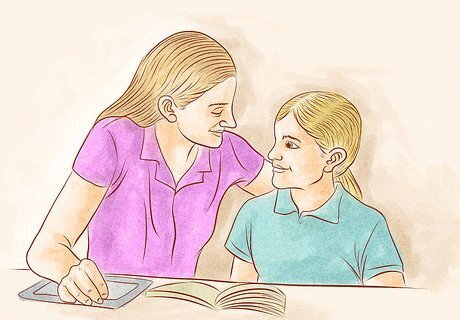
Improve your care-taking abilities. Being a parent isn't easy, but you do have resources to help make it better. CPS may require you to take parenting classes, but even if they don't, it may be a good idea to find a free parenting class in your area. If you're not sure where you can find one, ask your CPS worker, as he or she will be happy to help you find one in your area. These classes can help you learn how to deal with your children when they get angry or messy. They can also help you build relationships with other parents.
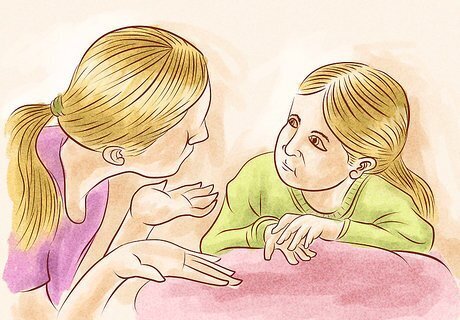
Build a relationship with your child. You have to work on a relationship with your child just like you work on relationships with other people in your life. Make sure you make time to spend with your child, and make sure you follow through with what you say you will do. Your child will only trust you if you give them a reason to, by doing what you say. It also means respecting who they are as a person. That is, give value to their opinions and their being. However, she also must learn to respect you, which you help them do by setting appropriate boundaries. One way you show your child you respect them is by listening to them. For instance, if they have a problem, don't just brush it off as silly. It's important to them. Take the time to listen, and help them figure out a solution.

Find a way to support your kids. Finding and keeping a job is not always easy, but for your kids' benefit, you or someone in your household needs to be able to hold down a job. You need to be able to provide financially for your child in one way or another. Just like CPS, you should be watching for signs of abuse in your child, such as bruises, your child suddenly becoming withdrawn, or bloody or torn underwear. If you notice signs of abuse, call in CPS and use their expertise to help figure out where the problem is. If your bringing the abusive adult into your child's life by being in abusive relationship, take steps to get out of it. The best way is to cut the person out of your life completely, which is harder than it sounds, especially if the person wants to continue to control you. However, you do have resources available. If you fear for you or child's safety, call the police. If the problem is less immediate, you can call the National Domestic Violence Helpline, 1-800-799-7233 (SAFE), which can put you in touch with resources in your community. CPS workers will also be able to help.
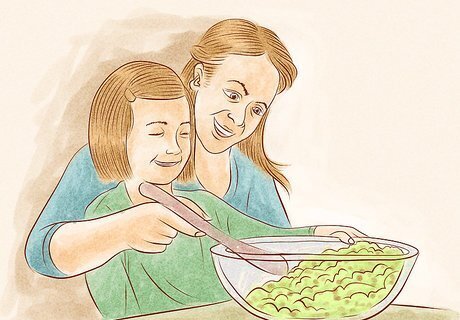
Lead by example. Once you have resolved your issues, it's time to lead by example. Good parents do not do things that they don't want their children to do. If you want your children to be caring, nurturing people, you need to create a caring, nurturing environment for them. If you expect your children to listen when you speak, you need to listen when they speak. They're watching you to learn how to act.















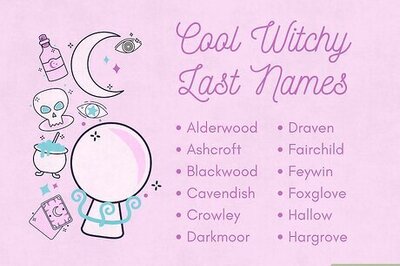
Comments
0 comment